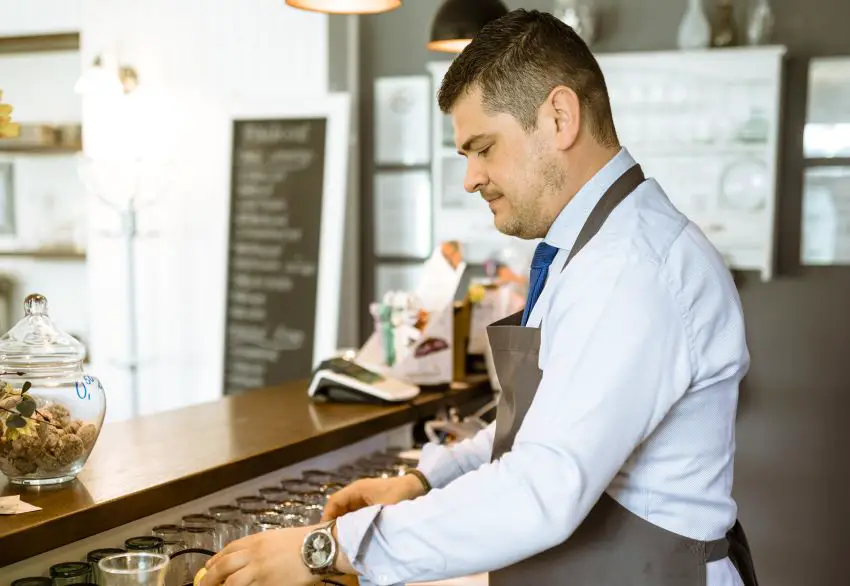I recently witnessed an uncomfortable situation at dinner with another expat. When the plate arrived, she became irate at the waiter, who brought her something she hadn’t ordered. I have never heard someone from Mexico get angry at a waiter, so her behavior struck me as not only being rude, but culturally tone-deaf, as she had ordered in poor Spanish. I was so embarrassed that I went back to the restaurant the next day and apologized on her behalf. The waiter could not have been more gracious.
She is not alone, of course — we all violate cultural etiquette at times. We may even be wired to assume our own culture is better than others: evolutionary psychologists suggest that since our ancestral roots are tribal, our actions reflect a powerful loyalty to our tribe or social group.

This, however, doesn’t excuse us from committing repeated cultural offenses. To avoid inappropriate behavior, practice what cross-cultural experts call “cultural competence”: the ability to interact respectfully and sensitively with people of different cultures. Here are eight ways to do that in Mexico.
Study your own culture
This is often easier said than done There’s a famous line attributed to the 1920s American anthropologist Ruth Benedict: “The fish are the last to see the water.” In other words, our own culture can often be invisible to us. U.S. culture, for example, has a fairly direct communication style, which I only figured out after marrying Barry, a Brit, and discovering that my in-laws sometimes interpreted my direct style as rude.
I, meanwhile, thought they were evasive and even occasionally dishonest. Fortunately, I not only grew to love and understand his family but learned about different communication styles. That came in handy for living in Mexico, another culture that values indirect communication.
Observe the locals
Study their interactions with each other, their dress, eating styles and table manners, how they greet and say goodbye to each other, their formalities and so on. When Barry and I were remodeling our Mexican house, for example, we noticed the importance of hierarchy and titles when our contractor would address the architect not by his first name, but as “Arquitecto.”

Find a trusted guide who can answer your questions
Spanish teachers can serve as cultural interpreters, as can people with dual Mexican and U.S. citizenship. My first Spanish teacher, for example, explained to me that Mexicans like to tease each other, give friends cheesy nicknames and make jokes about things that in the U.S. would be considered inappropriate, like the time at a concert when one of the musicians referred to another as “gordito” — plump. It’s hard for me to picture an American performer referring to their fellow musician as “Fatty.”
Adopt a curious, listening mindset
My model is the late Fran Peavey, an American political activist and author of the book “Heart Politics.” During the 1980s, she traveled to different cities around the world, sitting in public squares with a placard reading “American willing to listen.” Scores of people would stand in line for hours waiting to talk to her.
Weigh carefully whether to raise sensitive subjects with people you don’t know well
In the 1990s, Barry and I spent three weeks in Oaxaca studying Spanish and staying with a host family who had two adult children in their twenties. One of the other Spanish students staying at the house had told me that the 22-year-old son had fathered a child who didn’t live with him and that this was not unusual in Mexico.
On the last evening, we took our hosts out to a restaurant. During dinner, I blithely asked to the mother “You have a grandchild, don’t you?” No, she said, icily, frowning. “I don’t have any grandchildren.” I realized with a pang that I had crossed a cultural line.
Avoid stereotypes, which are usually negative
Americans are loud, Mexicans are lazy, Brits are reserved, Japanese are timid and so on.
I still cringe remembering a stereotype I repeated the first year I lived in Guanajuato. “Mexicans love to gossip,” I announced at a small gathering, as though I were a modern-day Margaret Mead who had done anthropological research on the culture for decades. Fortunately, a Mexican-American friend took me aside and tactfully suggested I refrain from such comments again.

Afterwards, deciding I should educate myself about gossip, I looked it up and discovered it’s a universal aspect of all cultural groups. No one has a monopoly on it.
Use self-effacing humor
When Mexicans ask me where I’m from, I say, “Soy estadounidense,” and then often add, “No es mi culpa” — “It’s not my fault.” I don’t feel I’m to blame for being American, and I’m not ashamed of my nationality. But given Mexico’s ambivalent relationship with the U.S., this immediately lightens any possible tension. The person I’m chatting with almost always cracks up, and it breaks the ice.
Expats are not experts!
Even if I’ve lived in Mexico for many years, I keep reminding myself I’m not an authority on the culture. It’s easy to assume I know more than I do.
Wherever we’re from, we tend to think our birth culture’s practices and customs are the norm, and to react with surprise — and even occasional anger — when other cultures don’t follow our lead. None of us is immune from making cultural gaffes. The trick is to notice, acknowledge the error, apologize and start over.
Louisa Rogers and her husband Barry Evans divide their lives between Guanajuato and Eureka, on California’s North Coast. Louisa writes articles and essays about expat life, Mexico, travel, physical and psychological health, retirement and spirituality. Her recent articles are on her website, https://authory.com/LouisaRogers
